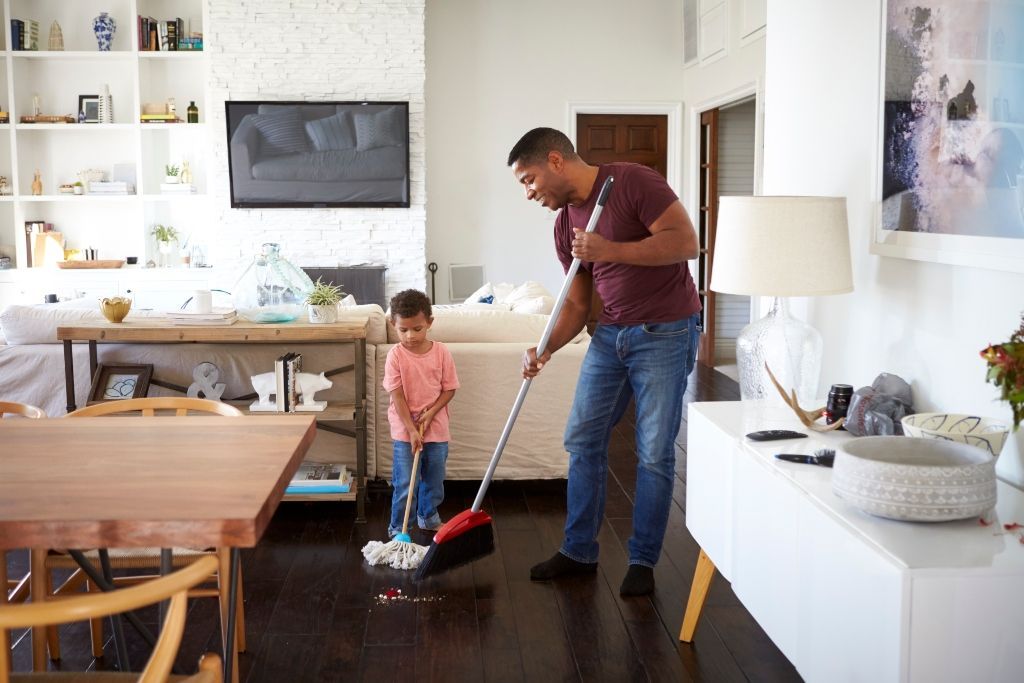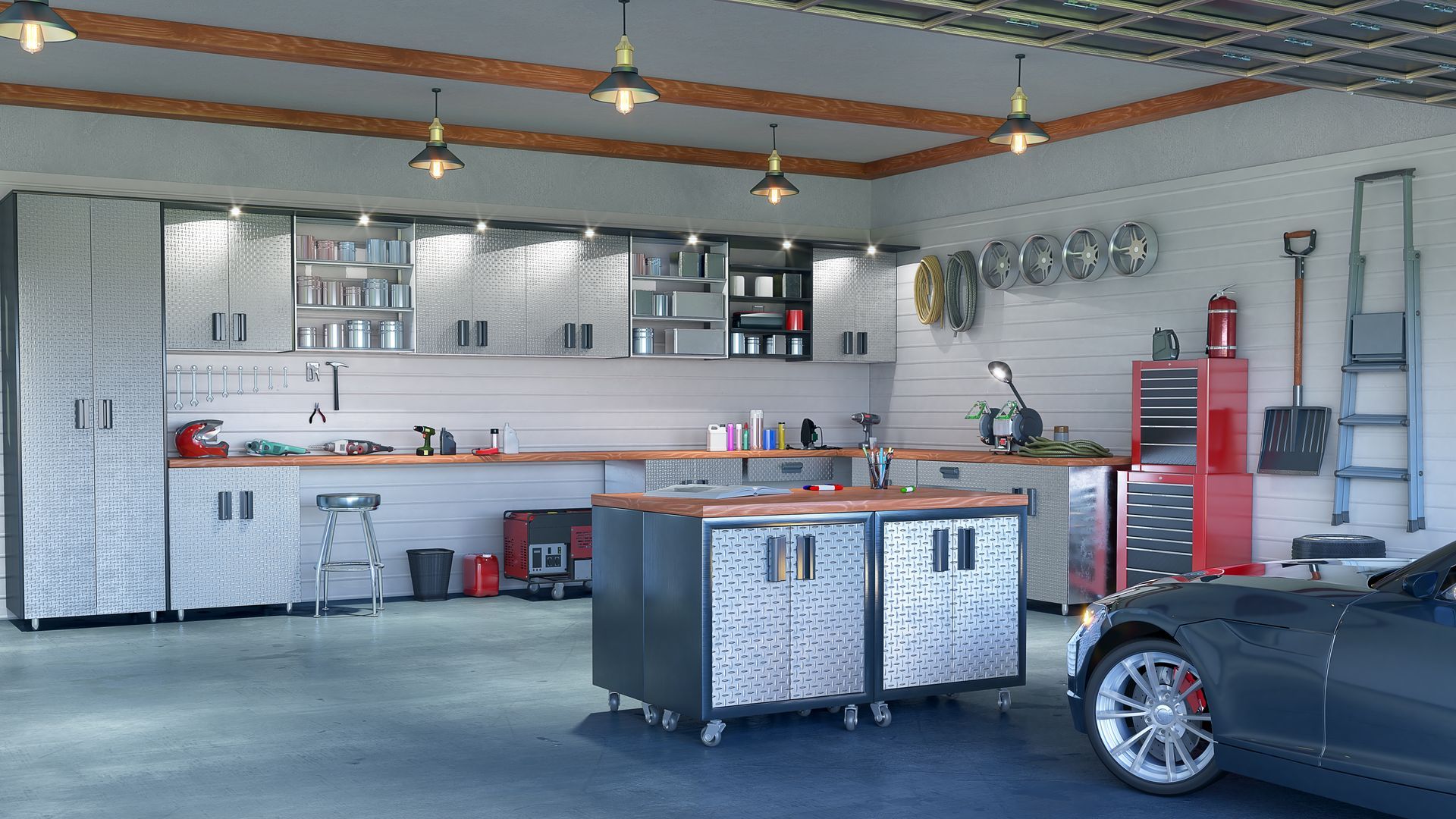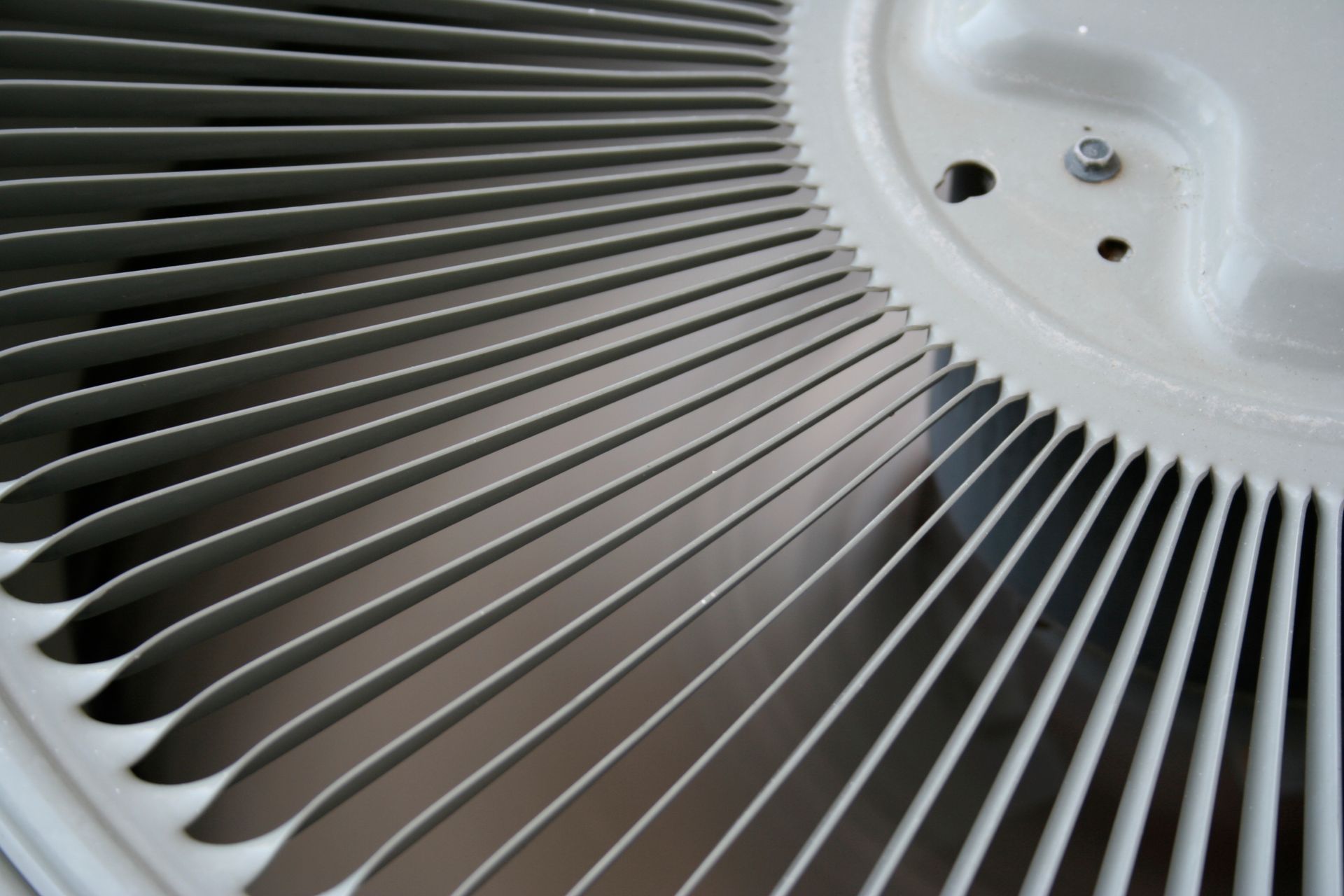Our Blog
Our Blog

April 29, 2021
Spring officially began on March 20 and despite some chilly days and “surprise” snowfall, cooling season is on its way. You may be ready for the shift, but is your air conditioner? Use these spring HVAC reminders and tips to help prepare your system for the hot summer days ahead. Cleaning Tips Around the Home Whether you’ve already finished your spring cleaning or have yet to bust out the rubber gloves, don’t forget to incorporate your HVAC system into your routine: Dust and disinfect floors and hard surfaces around the home. Keeping them clean helps prevent dirt, allergens, and other airborne particles from getting inside your ductwork. Clear debris buildup from exhaust fans. After making sure the power is off, wash with soapy water and use a toothbrush to clean dirt and debris off the fan blades. Clean windows, blinds, and curtains. That way you can let in fresh air and sunlight without a producing a cloud of built-up dust whenever you open them. Dust the blades of your ceiling fans. Similarly, you don’t want dust to fly all over whenever you turn the fan on. And remember to run fans counterclockwise in the summer to blow air straight down and create a windchill effect. Clean the grills of floor registers and air vents. Use a vacuum to remove collected dust and debris. For a deeper clean, remove the vent, scrub the individual grill spaces with a rag and butter knife, and then rinse with warm soapy water. Have your Ductwork Professionally Cleaned While regular dusting, mopping, vacuuming, and cleaning of the vents and registers helps minimize the amount of debris that gets into your ductwork, there’s no way to prevent it entirely. Duct cleaning helps prevent dust, pollen, and other harmful particles from accumulating and impacting the health of your HVAC system and indoor air quality . Seal the Home Don’t let the cool air your HVAC system produces go to waste. Check windows, doors, and exterior walls for cracks and seams that could let indoor air escape and hot, humid outdoor air sneak in. Seal them with caulk to help maintain efficient cooling . …but Provide Proper Ventilation Providing fresh air and adequate ventilation are vital to maintaining indoor air quality . Open windows on nice days for natural ventilation and air flow. Consider installing an air exchanger that simultaneously removes stale, recycled indoor air while supplying fresh, filtered air from outside. Test the System & Schedule Preventative Maintenance Don’t wait for the first hot, humid day of the year to test your air conditioner. Turn the system on now to check for any issues, and schedule annual preventative maintenance with the local HVAC experts at WestAIR to ensure optimal performance, efficiency, and safety. With Minnesota’s unpredictable weather, spring can feel like little more than a brief break between the last snowfall and the first hot, humid day of summer. Don’t let the window sneak by without giving your home’s air conditioner some much needed TLC! Use these spring HVAC reminders to help ensure your system is ready to keep your home cool and cozy all season long. For all your heating and cooling needs, trust the knowledgeable, experienced HVAC professionals at WestAIR . Contact us to learn more about our services .

April 30, 2020
Seeing warmer weather and longer days is bittersweet for allergy sufferers. Spring may be in the air, but so are pesky allergens. As we spend more time in our homes during the COVID-19 pandemic, indoor air quality becomes more important than ever. Use these helpful tips for controlling spring allergies at home to stay healthy and comfortable. Change Shoes and Clothing After Being Outdoors Controlling allergies begins with limiting exposure to allergens. Limit your time outdoors whenever possible. If you do venture out, don’t wear the same clothing and shoes around your home. Dirt, dust, pollen, and other irritants can cling to you and your wardrobe. Avoid tracking them around by changing as soon as you return home. Dust, Vacuum, and Mop Regularly Dust and allergens will settle on the surfaces of your home. Try to clean them at least weekly, and more often if you are leaving windows and doors open. Have Your Ductwork Cleaned Air ducts transport fresh air between your home and HVAC system, and over time will collect dust, pollen, and other airborne particles that travel through them. Having them cleaned annually is vital to indoor air quality. Schedule a professional duct cleaning service to help ensure you’re ready for the season. Maintain a Clean Air Filter The air filter blocks airborne irritants from getting into your system. However, it becomes dirty and less effective over time. If left long enough, the filter can also become clogged and make your system work harder, causing higher bills and faster wear and tear. Change (or clean it if re-usable) your air filter monthly to keep the system running properly. Install an Air Cleaner The name says it all. An air cleaner uses a filter to trap up to 97 percent of airborne bacteria, mold, dander, and other pollen-sized irritants. It can also eliminate viruses, kill germs, and neutralize odors and fumes. Invest in Ultraviolet (UV) Light Air Purification Breaking through an organism’s cell wall to destroy its DNA, UV light rays prevent that organism from reproducing and causing illness. UV technology has been around for over 100 years, and many homeowners today utilize it as a highly effective way to kill harmful bacteria, mold, and viruses in the home. These systems conveniently work in conjunction with your current HVAC system. WestAIR is an authorized dealer of BreatheCLEAN UV air purification systems . Contact us to learn more or to schedule your UV light system installation. Consider an Air Exchanger Letting fresh air into the home can be beneficial, but it brings allergens along with it. An air exchanger solves this by exhausting stale indoor air and excess humidity while also delivering a continuous flow of filtered outdoor air inside. Installing a programmable thermostat will help you maintain indoor comfort without constantly managing temperature. And again, remember to keep your filter clean! Controlling spring allergies at home comes down to limiting exposure to allergens. It sounds simple, but don’t be fooled into thinking the home is a completely irritant-free safe space. While we may be spending less time outdoors than usual this spring, use these tips to maintain indoor air quality and keep allergy symptoms at bay. WestAIR’s HVAC experts are here for all your heating and cooling needs. As we continue helping our customers prepare their homes for the spring and summer during this time, our team is taking extra precautions to protect the health and safety of themselves and everyone they service . We prioritize your comfort and satisfaction in all that we do. Contact us today to schedule service and learn more.

March 19, 2020
We can finally see that spring is on its way! With the weather warming up, it’s time to start preparing the home for the cooling season. Will yours be ready? To help out, we put together a list of HVAC tips for spring cleaning. Change Air Filter (or Clean if Re-Usable) A dirty or clogged air filter makes your system work harder, leading to higher bills and increased wear and tear. It also negatively affects indoor air quality . Change your air filter (or clean it if re-usable), and plan to do so monthly to keep the system working properly. Clean Floor Registers and Return Air Vents If dust gets into your HVAC system, it can negatively impact both energy efficiency and your home’s air quality. Use a vacuum to clean your floor registers and return air vents. You can get a deeper clean by removing the vent, brushing the individual grill spaces with a rag and butter knife, and then rinsing with warm soapy water. Dust and Mop Around the Home Though you should do these chores regularly throughout the year, dusting and mopping are especially important during spring. With windows and doors being left open more often, airborne particles like dust, dirt, and allergens accumulate on your surfaces and eventually make their way into your HVAC system. Have Your Ductwork Cleaned Air ducts supply your HVAC system with fresh air, but they can quickly become dirty from all the dust, pollen, and other harmful particles floating in the air. Keeping them clean helps prevent these harmful pollutants from accumulating in your ductwork and impacting the health of your HVAC system and air quality. Spring cleaning is the perfect time for a professional duct cleaning service , which you should do annually. Clean Bathroom Exhaust Fan(s) Clean and properly functioning, bathroom exhaust fans help with odor and moisture control, which helps prevent mold and mildew. Be sure the power is off, wash it with soapy water, and clean dirt and debris off the fan blades with a toothbrush. Clean and Clear Debris from Outdoor A/C Unit If your outdoor unit doesn’t get enough air or has dirt-covered coils, it could overheat. Turn off the power and clear away plants, weeds, leaves, branches, etc., and then rinse the condenser coils with a garden hose. Check/Change Batteries in Smoke/Carbon Monoxide Detectors Smoke and carbon monoxide detectors are a crucial line of defense against two common household dangers. Check the batteries and replace them if necessary. You should also dust or vacuum them to optimize performance. Schedule Preventative Maintenance Don’t get caught with a failing A/C or expensive repair bill down the road. Schedule a preventative maintenance service with your local HVAC contractor to ensure your system is running smoothly and ready for the cooling season. During Minnesota winters, at times it feels like spring will never come. But when the days get longer and the temps rise, we know it’s time to start getting ready. Use these HVAC tips for spring cleaning to help make sure your home is ready for a safe, comfortable, and happy cooling season. The HVAC professionals at WestAIR offer experience and expertise to cover all your heating and cooling needs. Contact us today to schedule service and learn more.

April 9, 2019
Some of the most pressing concerns for Minnesota homeowners are humidity levels, poor air quality, and increased utility bills. In the spring, those HVAC issues are a hot topic as the warm weather approaches. Follow our spring HVAC checklist to inspect and prepare your equipment for summer. Turn off power to your outdoor unit from the electrical disconnect and clear away plants, weeds, fallen leaves, and branches. Use a garden hose to gently rinse off the condenser coils. If the unit doesn’t get enough air or the coils are covered in dirt, it could overheat. Change your filter , and plan to do so monthly when your furnace and air conditioning are in use. Filters keep dust and dirt from entering your system, extend equipment life, reduce energy costs, and improve indoor air quality. Clean return air vents and floor registers in your home with a vacuum. If dust gets in the system, it could compromise energy efficiency and air quality. For a deeper clean, remove the vent, wrap a butter knife in a rag to scrub the individual grill spaces, and rinse with warm water and soap. Check the batteries in your carbon monoxide detector(s) and replace if needed so you know it is working properly to keep your family safe. Caulk windows and doors to minimize air leakage so the cool air your system produces isn’t wasted. According to the U.S. Department of Energy , the best time to apply caulk is in low humidity when the temperature is about 45 degrees, making spring the ideal time for this simple maintenance. Dust and mop so dirt, allergens, and other airborne particles don’t end up in your ductwork. Schedule duct cleaning if you haven’t done so in a while or you suspect your ductwork is dirty. Clean windows, blinds, and curtains so you can let the sunlight into your home and enjoy a clear view of the outdoors without producing a cloud of dust each time you open them. Dust ceiling fan blades and reverse their direction to rotate counterclockwise so they’ll blow air straight down and produce a wind-chill effect. Most fan models have a small switch on the motor housing. Power up your air conditioning to see if everything is working properly. You should visually inspect the unit for any leaking chemical fluids and check your home for burning, gas, or musty odors. Schedule service with your HVAC contractor for a thorough inspection. They’ll clean, lubricate, and troubleshoot your equipment so it will run smoothly and efficiently. Midwest summers can be particularly hot and sticky, and homeowners can spend up to 250 dollars a month running their air conditioner. WestAIR Heating & Cooling is here to help you save money in every season with a variety of specials on our services. We also provide indoor air quality solutions so you can minimize spring allergies and live comfortably. If you are having trouble with your HVAC system, contact us for repair and replacement services .

February 22, 2018
Having a working furnace and air conditioner is crucial during the winter and steamy summer days. Don’t run it and forget about it, as wear and tear is inevitable. You can save on costly replacements or repairs through proper maintenance. Extend the life of your HVAC equipment by following these steps. Heating & Cooling Tips Follow manufacturer instructions. Have your systems checked every year by a qualified service technician. It’s best to schedule maintenance in the spring and fall. Technicians are busy in the hot and cold months, and you don’t want to wait until there’s something wrong. Check your filters. Replace your filters every 30 to 60 days . If you have a permanent filter, clean it with mild detergent every 30 to 60 days. This is the most important step to increase the life of your equipment. Dirty filters make heating and cooling units work harder, which will shorten the life with use. Keep your doors and windows closed. Your air conditioner and heater will work harder when there is more air to circulate. Make each space with ventilation smaller by closing your doors. This is the also the case for houses with boilers or window air conditioners. Rather than labor to regulate air temperature in the whole house, your a/c only needs to cool the individual room. With a boiler system, it’s efficient to close off rooms without a radiator. Caulk and weather-strip air gaps on windows. This step is good for your wallet and your HVAC equipment. Old houses are especially drafty, so locate the air leaks by finding damaged glazing or old caulking. Another trick is to turn off all appliances and light an incense stick in each room. Turn on your exhaust vent if you have one. Then hold your incense stick close to windows, doors, and walls for a noticeable change in the smoke. If you have drafty doors, invest in some door draft blockers. Use your thermostat. It’s a myth that you should keep your thermostat at a steady temperature. Most of the time, your furnace will be working harder to maintain the heat at a steady rate. Instead, program your thermostat for a comfortable temperature while you are home and ten degrees less while you are away. However, fidgeting with the thermostat will be less efficient, even if it seems harmless to put it up or down a degree or two. Keep it on a consistent schedule. Energy Efficiency Winter Open window shades when windows are facing the sun. Let the sun warm your house naturally, putting less work on your furnace . The vitamin D is good for you this time of year! Take advantage of using your oven. Slow cook your chicken and oven roast your veggies. The extra warmth will give your furnace a break. Your oven will be working two jobs at once without the added cost. Summer Close window shades facing the sun . Opposite of wintertime, you want to block the sun from adding extra heat to your house. Make sure to put your plants outside so they don’t suffer from the lack of sun! Be smart with your other appliances . When you are doing laundry, hang up your clothes on a line to save energy or strain on your a/c. Why work an appliance that uses heat when it’s already hot outdoors? Washing clothing shouldn’t be an issue, though, if you stick to cold water. If it’s humid out, dry your clothes during the coolest part of the day: around dawn. Same goes for dishwashers. Use your exhaust fans when cooking . Whether you plan on using the oven or stovetop for dinner, turn on the exhaust fan to let out the excess moisture and heat. Or maybe fix a cold sandwich or salad. In return, your air conditioner won’t have to work as hard! Same goes for your bathroom, but not everyone likes cold showers! Annual Service Maintenance Spring is around the corner, so it’s time to schedule your maintenance visit with WestAir Heating & Cooling. Our technician’s maintenance list will take care of most things you cannot do yourself to ensure your equipment is running smoothly for summer and winter: Annual Service Maintenance list: • Clean furnace and check operation/filter • Clean air conditioner and check operation • Clean outdoor condenser and check refrigerant level • Clean air exchanger filters and core • Check radiant in-floor pressures and go over system • Check humidifier filter and drain line • Check unit heater operation • Clean fireplace and check operation Contact us for more information on heating, cooling, or our service maintenance!
Categories
Search Blog Posts

– Steven in Albertville



